
Anisa Hay, 32, raised in the USA and now UK based, is volunteering with VSO’s Let's Learn Through Play project in Rwanda, where she applies her experience of international volunteering and her work at a UK school for children with special educational needs.
Twigire Mumikino Rwanda (TMR), or ‘Let’s Learn Through Play’, is VSO’s education four-year project funded by the Lego Foundation, running from 2021 to 2025. By working with schools, parents, communities, and decision makers, the project supports Early Childhood Education teachers and promotes play-based learning as the foundation of early childhood education for 3-6 year-olds in Rwanda.
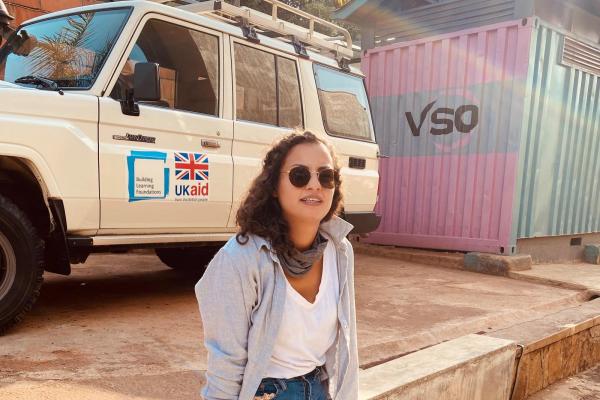
The project applies play-based learning in early childhood education as the basis for lifelong learning in all 30 districts of Rwanda, positively impacting over 250,000 children, 3,500 teachers, 2,400 school leaders and 145,000 parents as well as local leaders and community members in the school community. The project also mobilises school-level support by working with existing school-based mentors who currently support primary teachers. Here Anisa tells us about her work in Rwanda.
"I recently moved from the capital, Kigali, to the southern province of Huye (Butare). It’s a very lush tropical location surrounded with fruit and vegetation. I don’t need to use an alarm clock because I get woken up by monkeys running across the tin roof of my house at 5am every morning! It’s also the academic hub of Rwanda and very international, with people from across southern Africa coming to study at its university.
My role
My role on the Let's Learn Through Play project covers three provinces, working with a team of three Rwandan volunteers. We work with local staff in an early years setting comprised of children aged 3-6.
I’m one of the people working on the development of the teaching toolkit that we use for the project and I work directly with the programme implementers such as local teachers. I work in a mix of schools that can be reached by a motorcycle, some of which are rather rural. The insides of the classrooms are quite a contrast to what I was used to in the UK and the USA due to the enormous classroom sizes and level of resources.
Anisa HayAnyone who can do it should volunteer. It’s such a rewarding experience and helps you to develop perspective.
Education Volunteer - Let's Learn through Play, Rwanda
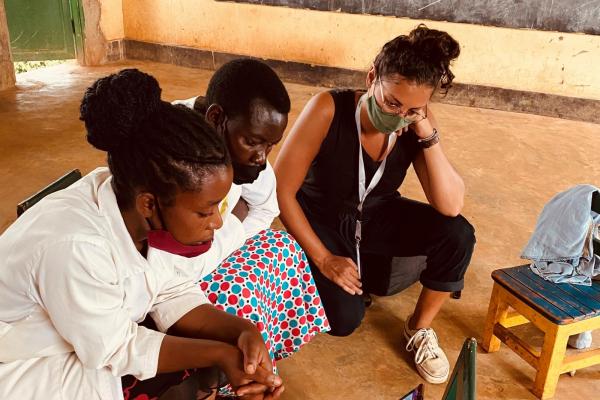
Life in a Rwandan classroom
Prior to my placement in Rwanda, I taught kids with Autism Spectrum Disorder at the second largest specialist school in the UK. The school in the UK was very well resourced. Each class had four or five teaching assistants with classes of a maximum of 12 pupils. In Rwanda there are normally around a hundred pupils in a class and one school had two-hundred children in a class.
Some of the classrooms have furniture, but in most cases they are lucky to have a mat to sit on instead of the bare floor. The walls are often completely empty too. Also most teachers have no formal training in education because early childhood education is not as valued and consequently not adequately paid by the government.
We see a skills gap from before children start their primary school. This impacts their future academic progress as reflected by a high dropout rate before children reach secondary school.
Our job is mainly to work on upskilling teaching staff through assessments and developing the children’s socio-emotional capacity and school readiness skills. The hard and soft skills that are learnt in early childhood education are very much undervalued and overlooked even though so much of how children learn is through play.
If you don’t learn these foundational core skills at a young age it can mean that you are already at a disadvantage to your peers, and we see that the opportunity gap widens as children get older.
My volunteer journey

I have worked in a range of educational settings before my placement in Rwanda. In 2011 I graduated from university with a Political Science degree, but that felt very existential. My perspective changed after I read a book called Savage Inequalities: Children in America's Schools by Jonathan Kozol. This examined the stark inequalities and extremes of wealth and poverty seen in schools across the country and after reading it I decided to work in the education sector.
However, I realised that it was difficult to make effective policies without understanding grassroots teaching. Although not being formally trained as a teacher, I’ve now worked in and around education for over a decade, I focused on Education and International Development when undertaking a Comparative Education Systems master's at University College London.
I worked with refugees from Somalia and Mexico through AmeriCorps - the domestic version of the Peace Corps - and volunteered for Street Child in Sri Lanka, which set me up for international volunteering.
This experience opened my eyes to the reality of international development. It’s not like a straight line - the fact that there have been bumps along the way means that you have to develop resilience strategies for when things don’t go your way.
Why I volunteer

As a baby, I was orphaned in Morocco and adopted by my American parents when I was a few months old. I was extremely sick because I was lactose intolerant and people didn’t really understand it in the 1980s. For that reason, I’ve always been aware of how lucky I am, and how my life would have been very different if I had not had the opportunities that I’ve been given.
That’s why volunteering in Africa was always on my radar as a way to give back my good fortune of being adopted by my parents. VSO’s training was something I also considered due to VSO being a household name. When I am introduced to people as a VSO volunteer, they really care about your experience and knowledge. The positions VSO hire for are professional, and you have a valuable function as a VSO volunteer.
I think that anyone who can do it should volunteer. It’s such a rewarding experience and helps you to develop perspective. These days we seldom step into anyone else’s shoes. It’s so important to be humbled by other people’s experience and to share culture and I can’t wait for my mum and partner to hopefully be able to visit next year."
You can follow the progress of the ‘Let’s Learn through Play’ programme on Twitter at VSO Twigire Mumikino Rwanda (@VSO_TMR).
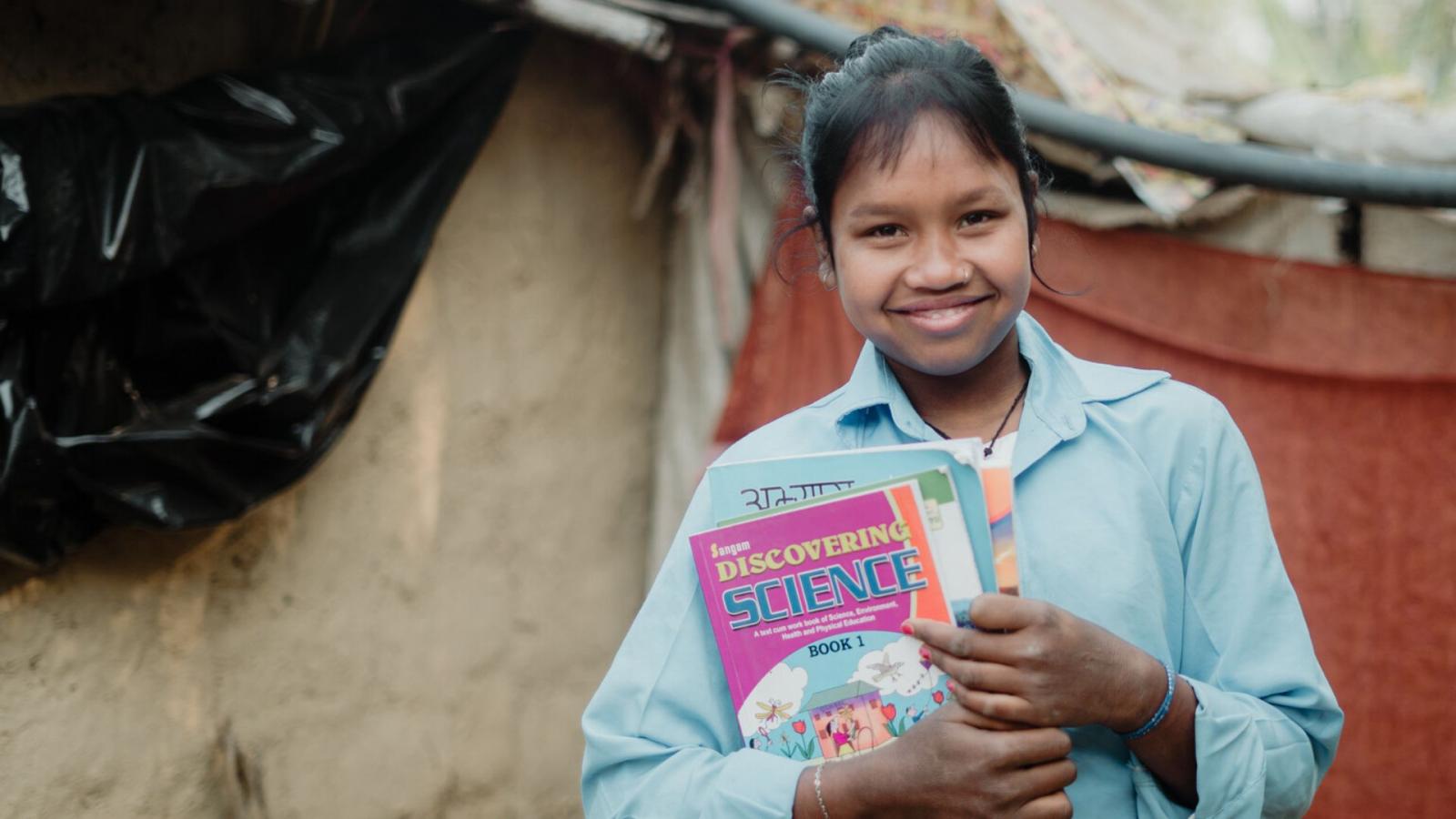
Support us with a donation
Read more
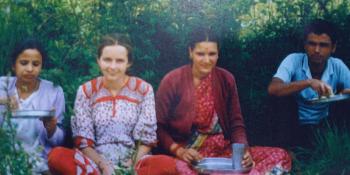
Reflections of 30 years: My time as a teacher trainer in Nepal 1985
Meet Anna Robinson, a British woman who volunteered as a VSO teacher trainer in Nepal in 1985. 30 years on from first arriving on placement, Anna has returned to Nepal. In this blog Anna shared her highlights and learnings from her experience.
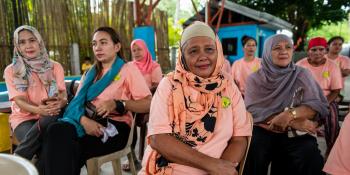
International Women's Day quiz 2025
International Women's Day, commemorated each year on the 8 March, is a global occasion celebrating the achievements of women. But how much do you know about the state of women and gender equality? Find out by taking our short quiz!
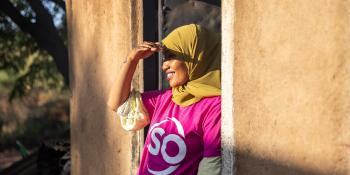
Five things women achieved this year that you might not know about
This International Women's Day, join us in celebrating the resilience of women across the globe with some female achievements you might not have heard about.
